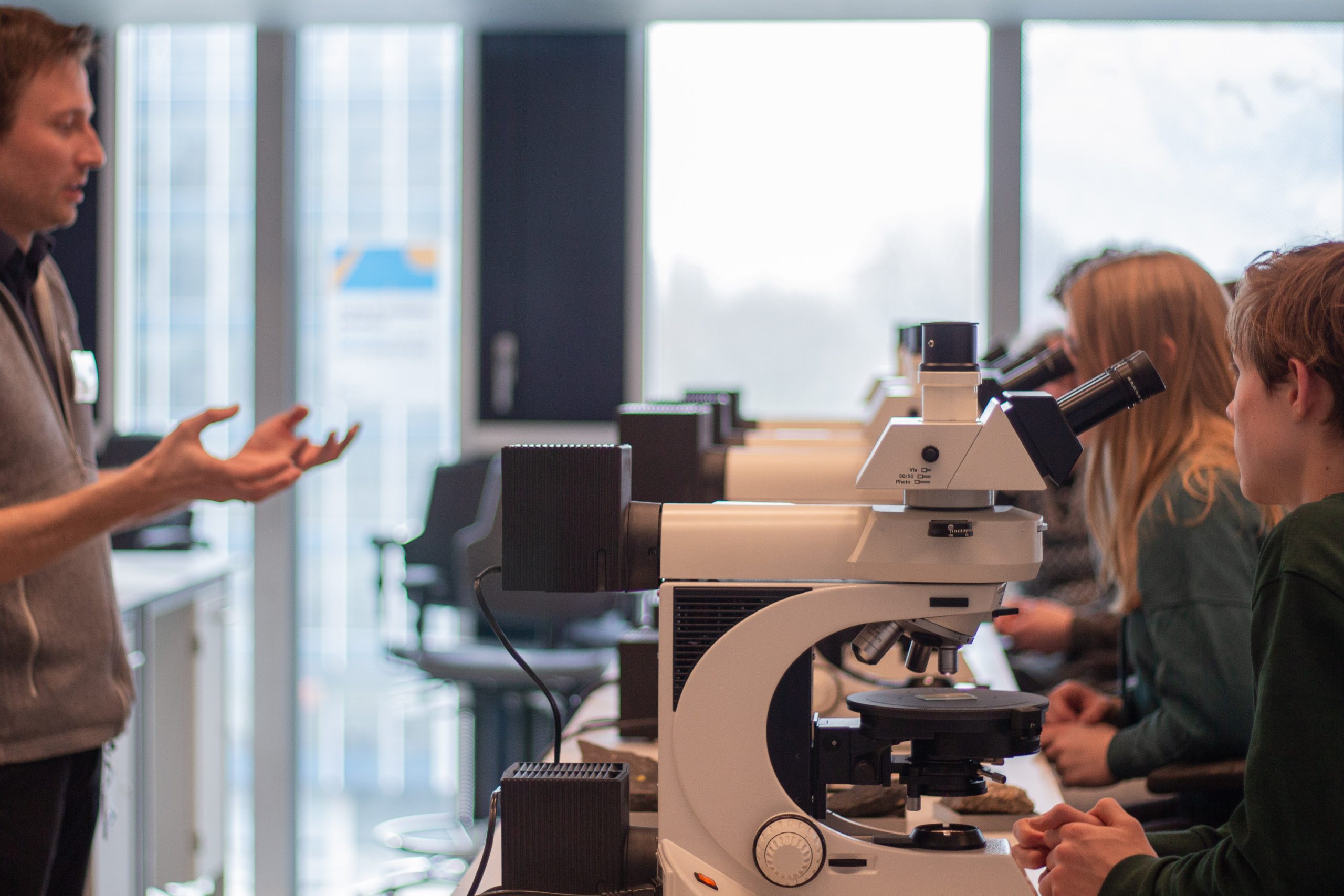Members of the scientific community are calling on the new government not to cut research funding. PhD students and postdocs urge prospective education minister Eppo Bruins to heed the advice he ‘gave himself’ very recently: invest in knowledge and research.
(Photo: Justyna Botor)
Two years ago, the outgoing education minister earmarked an additional 200 million euros for higher education institutions, in the shape of ‘sector plans’. Integral to the education budget, these plans were aimed to give institutions the resources to offer 1200 researchers a permanent contract early in their career. The incoming coalition government of PVV, NSC, VVD and BBB now wants to reverse that investment, a move that has sparked considerable opposition.
The Society of Spinoza and Stevin Laureates has attacked the cuts as a threat to the Netherlands’ earning capacity. In a letter to the editor of national daily NRC, 78 laureates emphasise that the sector plans provide long-term vision and stop research falling prey to fads and fleeting trends.
Breach of trust
The prize-winning scientists slam the proposed cuts as ‘a huge breach of trust between the new government, the Ministry of Education, Culture and Science, and the scientific field as a whole. Especially considering that some 1200 young researchers have been given permanent employment contracts in recent years.’ They argue that the cuts “put these appointments at risk”.
In their letter, these scientists echo earlier criticism voiced by the Royal Netherlands Academy of Arts and Sciences. The Academy was ‘shocked by the warning signs’ being given off by the new coalition. WOinActie, a platform of university lecturers and students, calculated that the total cuts to higher education in the coalition agreement equate to the budget of a major university.
‘Settling scores’
Yet the cuts to the sector plans are not entirely unexpected: they had already come in for criticism from VVD. Two years ago, the party raised the issue of funds being given to the social sciences and humanities, rather than ‘the Netherlands’ earning capacity’.
‘Investment in research, development and innovation is of a vital nature’
Last week, PVV said it was happy to see cuts being made to universities where, in its view, activism has become too dominant. The party gave no evidence to back its position. In a farewell interview in NRC newspaper last Friday, outgoing education minister Robbert Dijkgraaf said he found the PVV’s statement ‘hard to accept’ as it suggested a desire to ‘settle scores’.
Precarious
It also pains him to see that investment in permanent contracts for young researchers is in danger of being withdrawn. Groups representing the interests of PhD candidates and postdocs in the Netherlands – Promovendinetwerk Nederland and PostdocNL – share Dijkgraaf’s concern in a statement issued this morning. Scientists starting out on their careers ‘will pay the price’ of these cuts, the groups insist. ‘Precarious contracts, heavy dependence on managers and abuse of power lead to social insecurity, especially among young researchers.’
Own advice
They point to an opinion piece in FD by prospective education minister Eppo Bruins, published on 6 June. At the time, Bruins was writing as head of the Advisory Council for Science, Technology and Innovation (which posted the letter on its website the following day).
Five days later, he was announced as candidate for the post of Minister of Education, Culture and Science. In the piece, he advises the new government – and, it now turns out, himself – to ensure ‘stable and long-term public-sector funding for research and innovation’. He describes such funding as ‘essential to give companies and knowledge institutions greater certainty, so that they know where they stand’.
Bruins’ opinion piece also touches on the concerns raised among scientists “even before the presentation of the coalition agreement”, in response to proposed cuts in the National Growth Fund. ‘These are legitimate concerns given the vital nature of investment in research, development and innovation. A country that fails to systematically invest in these areas has no future.’
HOP, Olmo Linthorst/Translation: Taalcentrum-VU
Do you have a question or comment about this article?
redactie@hogeronderwijspersbureau.nl


Comments are closed.